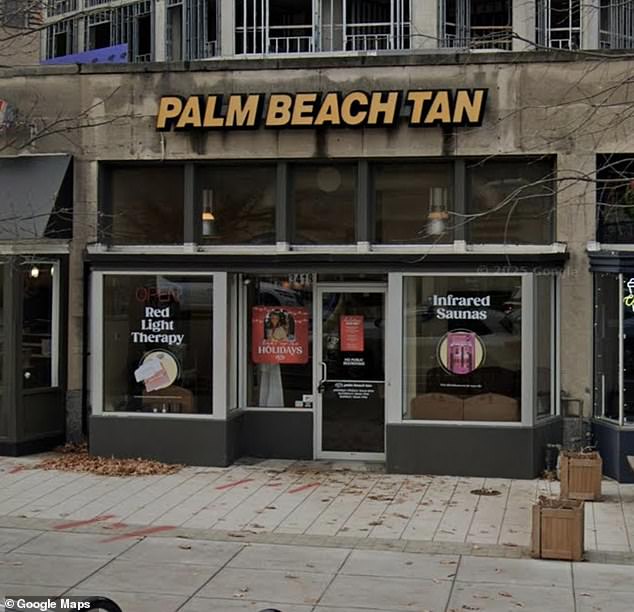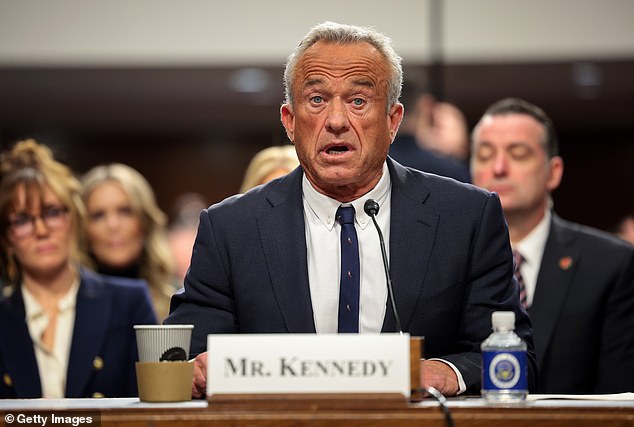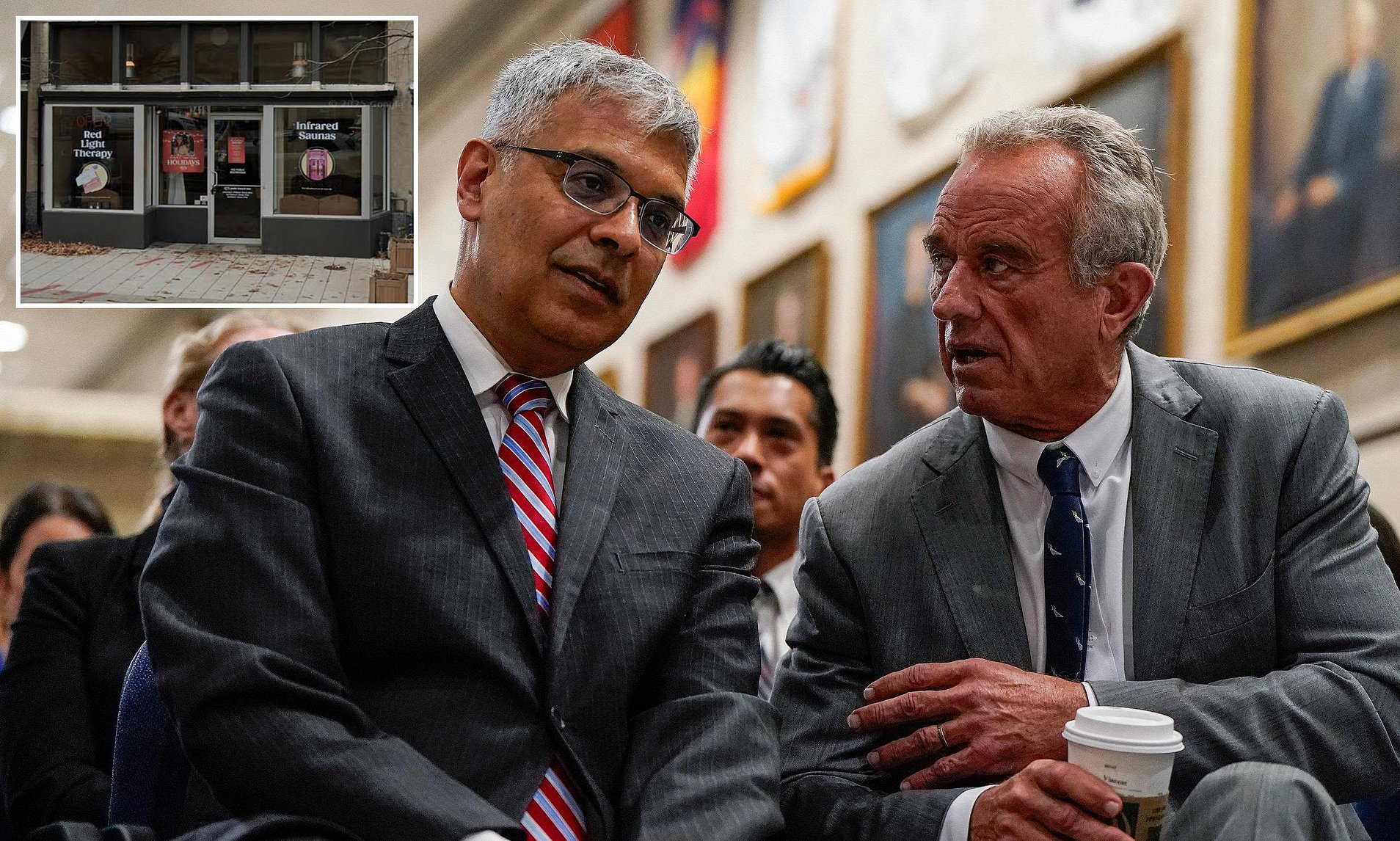-
READ MORE: Urgent cancer warning over popular tanning product
Robert F Kennedy Junior
is no stranger to a wellness routine, but his latest one is raising eyebrows as critics point out the health secretary’s hobby could cause
cancer
.
RFK Jr, 71, was snapped leaving a tanning salon in Washington,
DC
last week surrounded by a team of security guards.
In the clip, he is shown exiting Palm Beach Tan, a business that offers multiple tanning services.
The salon says it is
‘100 percent dedicated to helping you find your perfect shade’, offering both UV beds —
linked to skin cancer
and premature aging — and spray-on tans — which may cause DNA damage.
The national chain states it offers ‘cutting-edge sunbed and spray tanning options,’ as well as ‘state-of-the-art wellness services, including red light therapy, infrared saunas, and more’.
It isn’t known which service the secretary received and when contacted by News, a receptionist at the salon declined to comment.
She told this website: ‘We can’t comment on that; have a nice day.’
However, if the secretary did receive one of the tanning treatments, he could be setting himself up for major health problems, as tanning beds are associated with an up to 75 percent
higher risk
of skin cancer and chemicals in spray-on tan mists are linked to DNA damage and breathing problems.

The Department of Health and Human Services did not respond to a Newsrequest for comment now has he made any previous comments on his complexion or tanning habits.
Tanning beds use high-intensity UV radiation to produce a sun-kissed look, but this radiation can also penetrate the skin and damage the DNA of cells.
Experts say there is no safe level of exposure from these beds, while the International Agency for Research on Cancer lists them as Group 1 carcinogens — on the same level as tobacco smoke and asbestos.
While spray tans don’t use UV, their mist contains an additive called dihydroxyacetone, or DHA, a compound made from sugar that can attach to proteins on the surface of the skin to create a tan.
Small amounts of this tan may be able to enter the skin, however.
A 2004 lab study found a link between DHA and an increased risk of DNA damage, which could cause cancer – though it didn’t list a specific type of the disease.
DHA has also been linked to skin irritation and concerns over breathing problems if someone inhales the fumes.
RFK Jr’s tanning salon visit was revealed in a post on TikTok from Cody Miller, a fitness fanatic in the local area.
He posted the Health Secretary to background music from Spongebob Squarepants, and with the comment: ‘Nothing like being unhealthy on a Tuesday afternoon’.
The clip has since gone viral, racking up more than 1.1million views.


One commentator responded, ‘and he’s worried about red dyes?’, while a second said, ‘Is it a requirement that they all must be the same shade of orange as Trump?’
Another called RFK Jr a ‘rotisserie chicken.’
People have also responded by dubbing the clip a sign of Make America Orange Again and Make America Tan Again — a nod to the Trump administration’s slogan.
RFK Jr has not previously commented on his tanning habits but has raised eyebrows over his complexion in the past, especially at his senate confirmation hearing in January — where viewers pointed out he had an orange glow.
People on social media were quick to point out the irony that America’s top health official was potentially engaging in a cancer-causing act.
However, it is not the first case of RFK Jr seemingly skirting his own advice,
In another previous case, he was slammed as a ‘hypocrite’ by doctors after he was snapped with an ultra-processed energy drink that contained potentially toxic ingredients.
RFK Jr, who has said he ‘never eats’ ultra-processed foods, was photographed clutching a bottle of C4 Energy drink at Gold’s Gym on Venice Beach in February, while posing for a photo with a former jiu-jitsu world champion.
The drink has 17 ingredients in it, including several preservatives that have been linked to major health conditions such as cancer.
Read more











